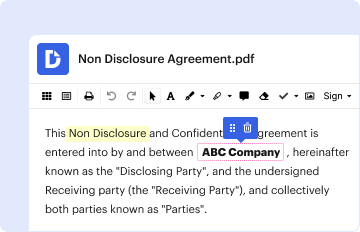Definition and Meaning of the Macromolecule Worksheet Answer Key PDF
The macromolecule worksheet answer key PDF is an educational tool frequently used in biology and biochemistry to assist in the understanding of biological macromolecules. It contains answers to various activities and questions designed to educate students about the structure, function, and significance of macromolecules such as proteins, nucleic acids, carbohydrates, and lipids.
The worksheet typically includes exercises that require students to:
- Draw molecular structures of organic compounds like glucose and triglycerides.
- Define key terms and concepts related to macromolecules.
- Complete matching exercises that relate to DNA and RNA structure.
- Engage in activities such as creating concept maps that connect different macromolecules.
This resource serves both as a guide for students to verify their understanding and an instructional aid for educators to facilitate discussions about important biological concepts.
How to Use the Macromolecule Worksheet Answer Key PDF
Using the macromolecule worksheet answer key PDF is straightforward and beneficial for both students and teachers. Here are several practical steps:
-
Accessing the Document: Download the macromolecule worksheet answer key PDF from a reliable educational source, such as a school website or online learning platform.
-
Reviewing the Questions: Start by reviewing the questions or activities included in the worksheet. These will typically cover various aspects of macromolecular biology.
-
Completing the Worksheet: As you work through the worksheet, attempt to answer each question independently. This process will reinforce your understanding and retention of the material.
-
Referring to the Answer Key: After completing the worksheet, cross-reference your answers with those provided in the answer key. This step is crucial for identifying areas where you may need further study.
-
Discussion and Application: Utilize the answer key in classroom discussions. Teachers can facilitate group exercises where students share their answers and clarify misunderstandings using the answer key as a reference.
Being methodical in your approach will maximize the educational benefits of using the macromolecule worksheet answer key PDF.
Steps to Complete the Macromolecule Worksheet Answer Key PDF
Completing the macromolecule worksheet involves a structured approach to tackle the exercises effectively:
-
Gather Materials: Ensure you have the necessary tools at hand, such as writing instruments, highlighters, and perhaps additional reference materials (textbooks, class notes).
-
Read Instructions Carefully: Each section of the worksheet may present different types of tasks, so pay attention to specific instructions regarding what is required.
-
Start with Definitions: Begin by defining key terms related to macromolecules. This foundational knowledge will serve as a basis for answering more complex questions later on.
-
Draw Structures: For exercises requiring molecular drawings, use clear diagrams that accurately represent the structures. Label each component within the molecule to demonstrate understanding of its parts.
-
Engage in Group Discussions: When possible, collaborate with peers to discuss answers and clarify doubts. This collaborative effort can enhance comprehension and provide diverse perspectives on the material.
-
Verify with the Answer Key: After completing the worksheet, use the answer key to check your work carefully. If there are discrepancies, review the relevant sections of your study materials and consult with teachers for further explanations.
By following these steps, students can effectively utilize the macromolecule worksheet answer key PDF to solidify their learning.
Important Terms Related to the Macromolecule Worksheet Answer Key PDF
Familiarizing oneself with key terms associated with macromolecules is critical for success in understanding the content. Here are several crucial terms:
-
Monomer: The basic building block of polymers, such as amino acids for proteins or nucleotides for nucleic acids.
-
Polymer: A large molecule made up of monomers; examples include proteins, carbohydrates, and nucleic acids.
-
Triglycerides: A type of fat found in the blood, composed of glycerol and three fatty acids; significant for energy storage.
-
Phospholipids: A class of lipids that are a major component of all cell membranes, providing structural integrity.
-
Nucleotides: The structural units of nucleic acids like DNA and RNA, consisting of a sugar, phosphate group, and a nitrogenous base.
Understanding these terms will enhance comprehension of the material presented in the macromolecule worksheet and provide clarity when using the answer key.
Examples of Using the Macromolecule Worksheet Answer Key PDF
Examples illustrate how the macromolecule worksheet answer key PDF can be effectively utilized in various educational scenarios:
-
In Classroom Settings: A teacher may distribute the worksheet at the start of a unit on macromolecules. After students complete it, the teacher can facilitate a review session using the answer key to discuss common misunderstandings.
-
Self-Study Sessions: Students preparing for exams can use the worksheet and its answer key as a self-assessment tool. After attempting the worksheet, they can identify topics that need further review.
-
Group Projects: In collaborative projects, students can split the worksheet duties among themselves and later converge to compare their answers using the key, fostering teamwork and knowledge sharing.
Each of these examples showcases the versatility of the macromolecule worksheet answer key as an effective educational resource across different learning environments.








